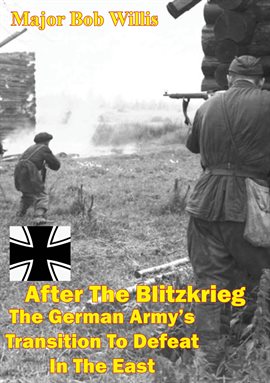
eBook
hoopla Instant
After The Blitzkrieg: The German Army's Transition To Defeat In The East
Year
2014
Language
ENGLISH
Publication Information
Verdun Press
Summary
The German invasion of the Soviet Union in June 1941 sparked a guerilla resistance unparalleled in modern history in scale and ferocity. In the wake of the initial invasion, the German Army began its struggle to secure a territory encompassing one million square miles and sixty-five million people and to pacify a growing partisan resistance. The German endeavor to secure the occupied areas and suppress the partisan movement in the wake of Operation Barbarossa illustrates the nature of the problem of bridging the gap between rapid, decisive combat operations and "shaping" the post-major conflict environment-securing populations and infrastructure and persuading people to accept the transition from a defeated government to a new one. In this regard, the German experience on the Eastern Front following Operation Barbarossa seems to offer a number of similarities to the U.S. experience in Iraq in the aftermath of OIF. This study highlights what may be some of the enduring qualities about the nature of the transition between decisive battle and political end state-particularly when that end state is regime change. It elaborates on the notion of decisive battle, how the formulation of resistance movements can be explained as complex adaptive systems, the potential of indigenous security forces and the influence of doctrine, cultural appreciation and interagency cooperation on operational-level transition planning.